Again Along This River
From Lyon, France
 I.
I.You’ve booked almost nothing to do today, and standing there in the tiny AirBnb kitchen, the roof so low you have to duck, the hot water heater protruding out to the wall, you mix together the left-overs of a salad from the Bio Boutique on the corner. The bed is tucked into a nook, enclosed by walls on 3 sides and lit by a skylight above. Sleep came easily, fortified by this sense of security. Down in the street there rise the sounds of the light rail, and the beginnings of people talking.
This day, about a year later, you can’t remember what you were doing in Lyon––only that you’d wanted to see it for some reason. It is lost in that mix of mid-sized cities in France––Toulouse, Bordeaux, Nice, Montpellier, Nantes––and in this way (in danger of being overlooked) is worth exploring.
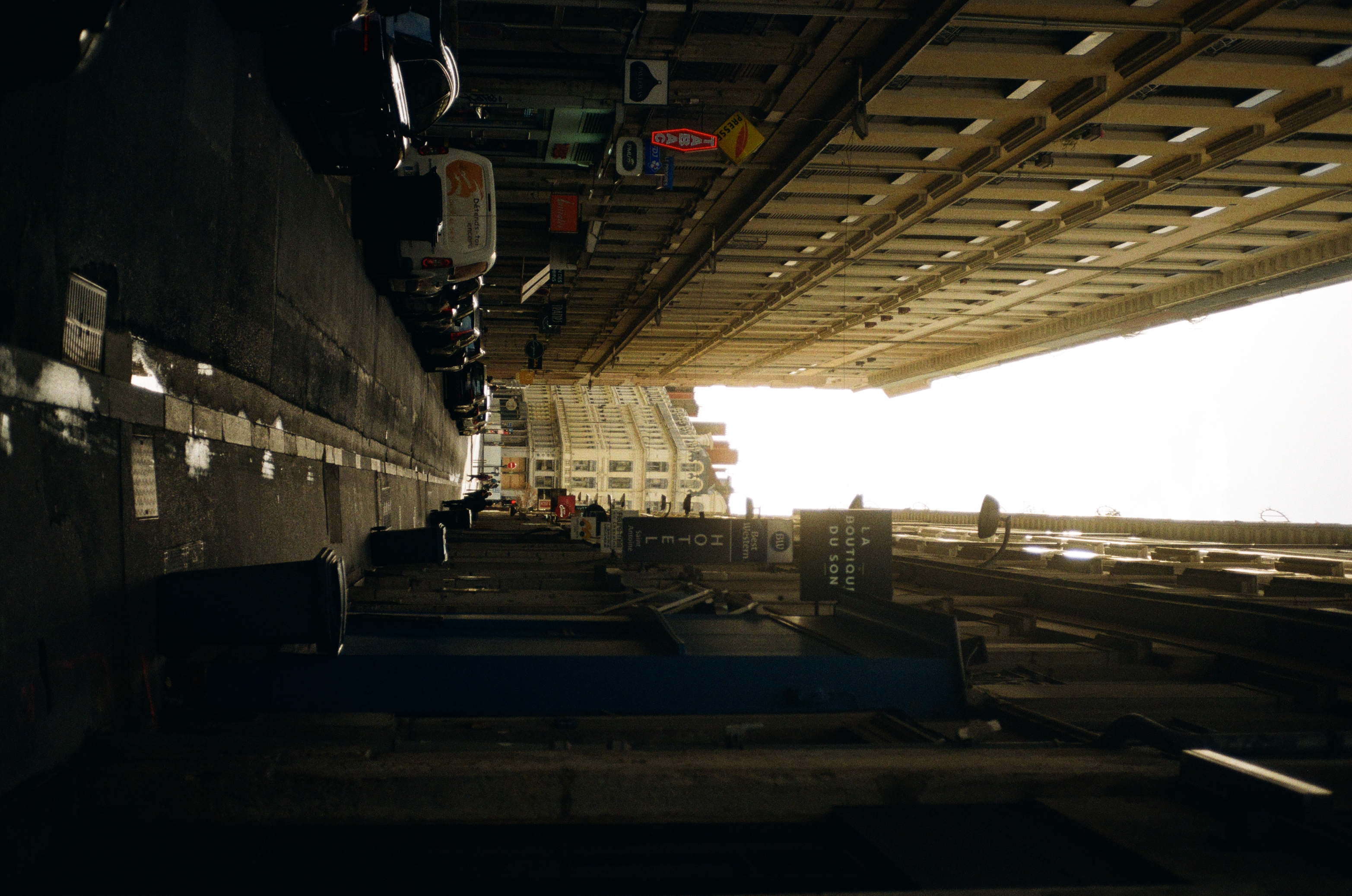
You’re here to suss it out, and while you haven’t been to Paris since you were a child, you now find these streets, Parisian. Mansard roofs come-out of the gloom beneath the rain on the day you stumbled in from the bus shelter. Such is the uniform of the country. The French heard is well-formed and opaque, like the surroundings. For Lyon is very pretty, so pretty you wonder (especially having grown up in America) how such form can function. If you lived in France you suspect you’d soon succumb to spending most of your time looking out the window.

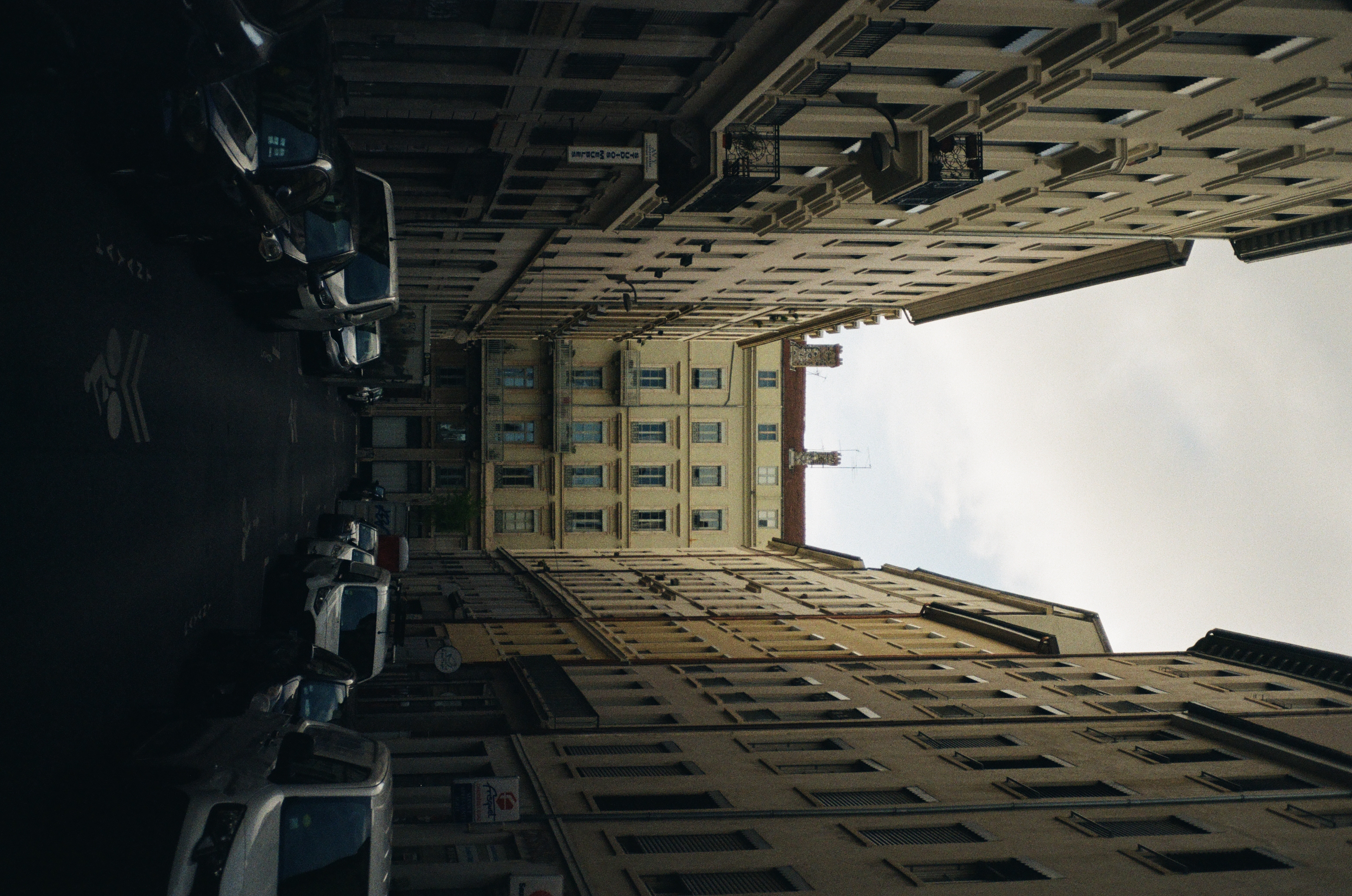

II.
You’re looking for a camera shop (having not brought enough film) and start your day in search. To your left, the Rhône is so still this morning it looks painted. Bridges span its banks, and you wonder as a tug passes below what this watery intersection creates in the mind of a city. An ability to see both sides––to both protest and then appease as happens like clockwork in the streets of Paris every several months. Few European countries split-open politically quite like France. And so many French cities are split by rivers. There’s a dissertation in there somewhere, you think.
The sun is still not too high over the roofs and casting long shadows down the streets. Walking, you plunge in and out of blackness. A hill intersects the city, with the more working class & bohemian districts on the fartherside (the 3rd & 6th arrondissements). The camera shop you’ve been hunting for seems to be in that direction, and so climbing the rise in terrain, over time, you find yourself with a view.

Up here feels like its own separate village. You stop in at a local butcher, and look into bakeries through their plate-glass windows. This small village, a part of a small city, reminds you of when you were a children and dreamt about places, far away & old, where magic still might exist. This dream still speaks here, or this hilltop in Lyon at least touches on the same deep-rooted amnesia.
You find a bench and sit for a while on the precipice, looking out at the view, just looking, before deciding to wander to lower ground. Downhill you find a neighborhood that feels lived-in. Play strucutres pop-out in bright colors as do other signs families are being raised. The Rhône is here too, cutting through things like watery déjà vu.
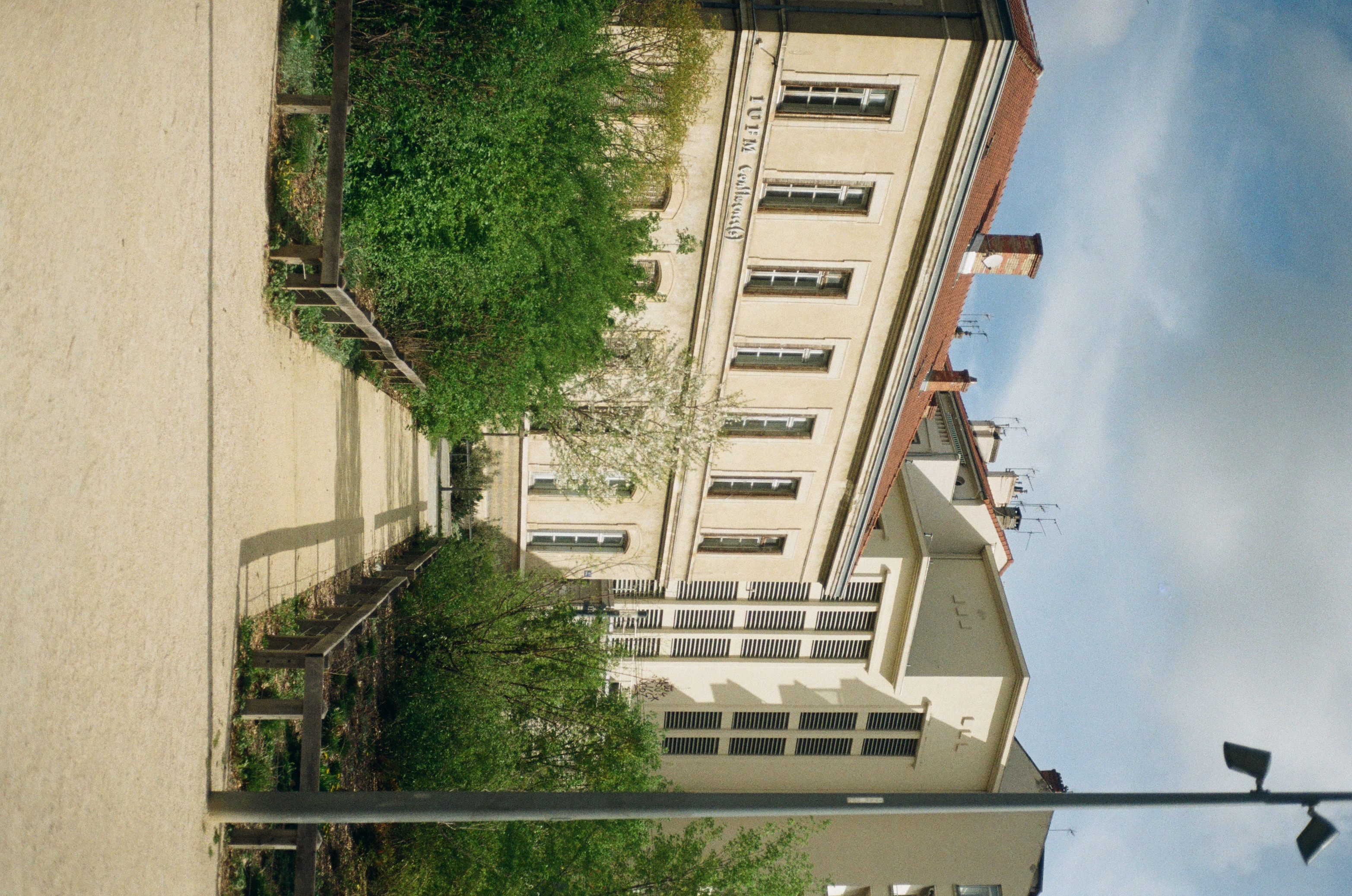

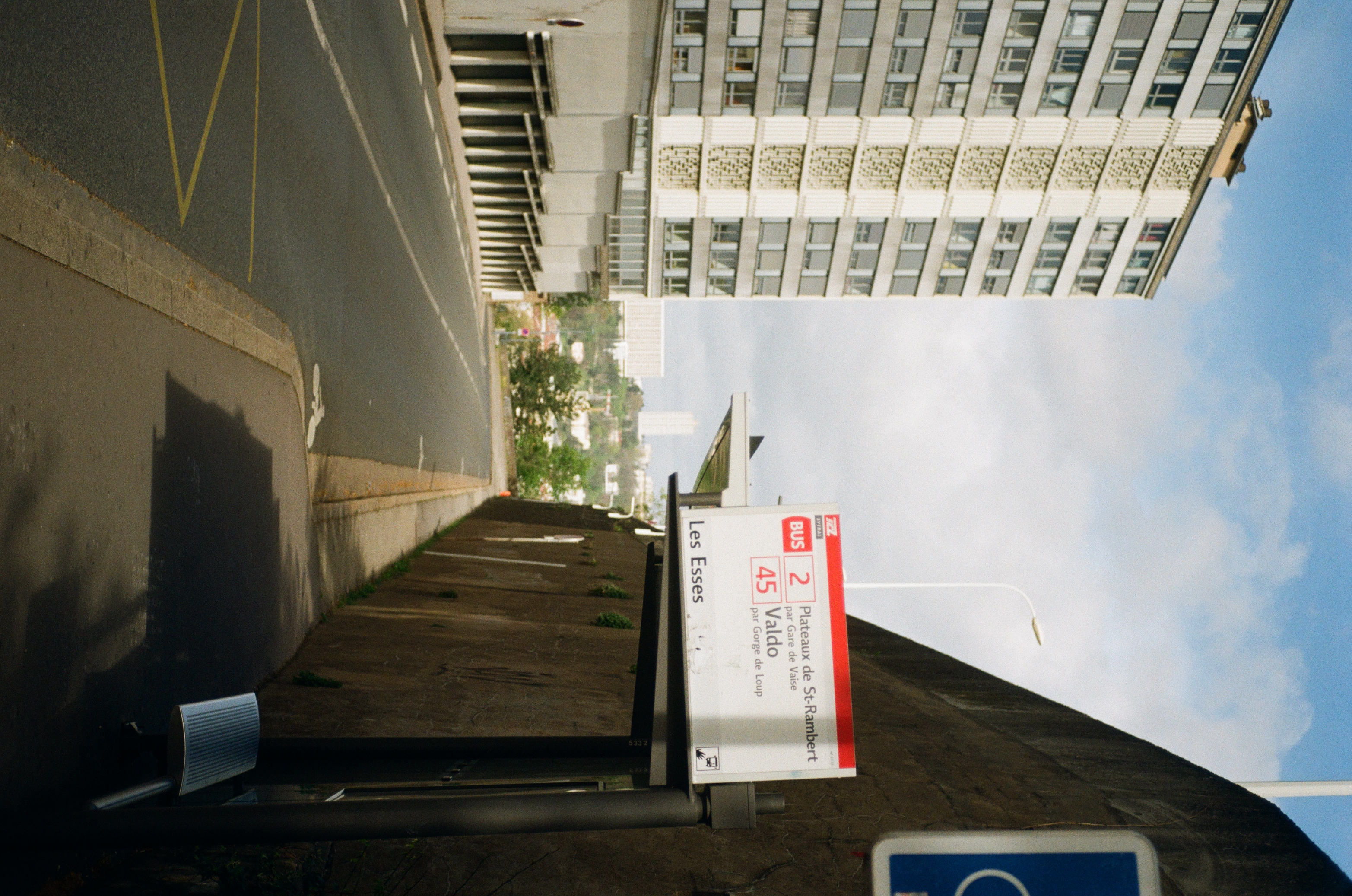
But you’ve been on your feet for 4 or 5 hours and have covered about the same number of miles. You take the subway home, where you sit in your kitchen beneath the slanted roof and spoon through a mason jar of yogurt you’ve picked-up at a farmers market. For lining just about every street in Lyon are a series of folding tables where old, French farmers will sell you the most beautiful produce.
III.
And this maybe is the promise of France, for throughout the whole day nothing you’ve seen has struck you as overly expensive or unreasonable. France is reasonable, and here you could lead a good life, you think. That’s more baked into the French mindset then perhaps any of the stereotypes we’ve unfairely labelled them with; that here, life is the goal. Not money, nor beauty, although that is a fairly pleasant side-effect. In Lyon, your kids have play-structures to clamber over and when they come home they have organic produce to grow-up on. All probably for about the same price you’d pay in Dayton or Tucson. If that isn’t the American dream, I don’t know what is.
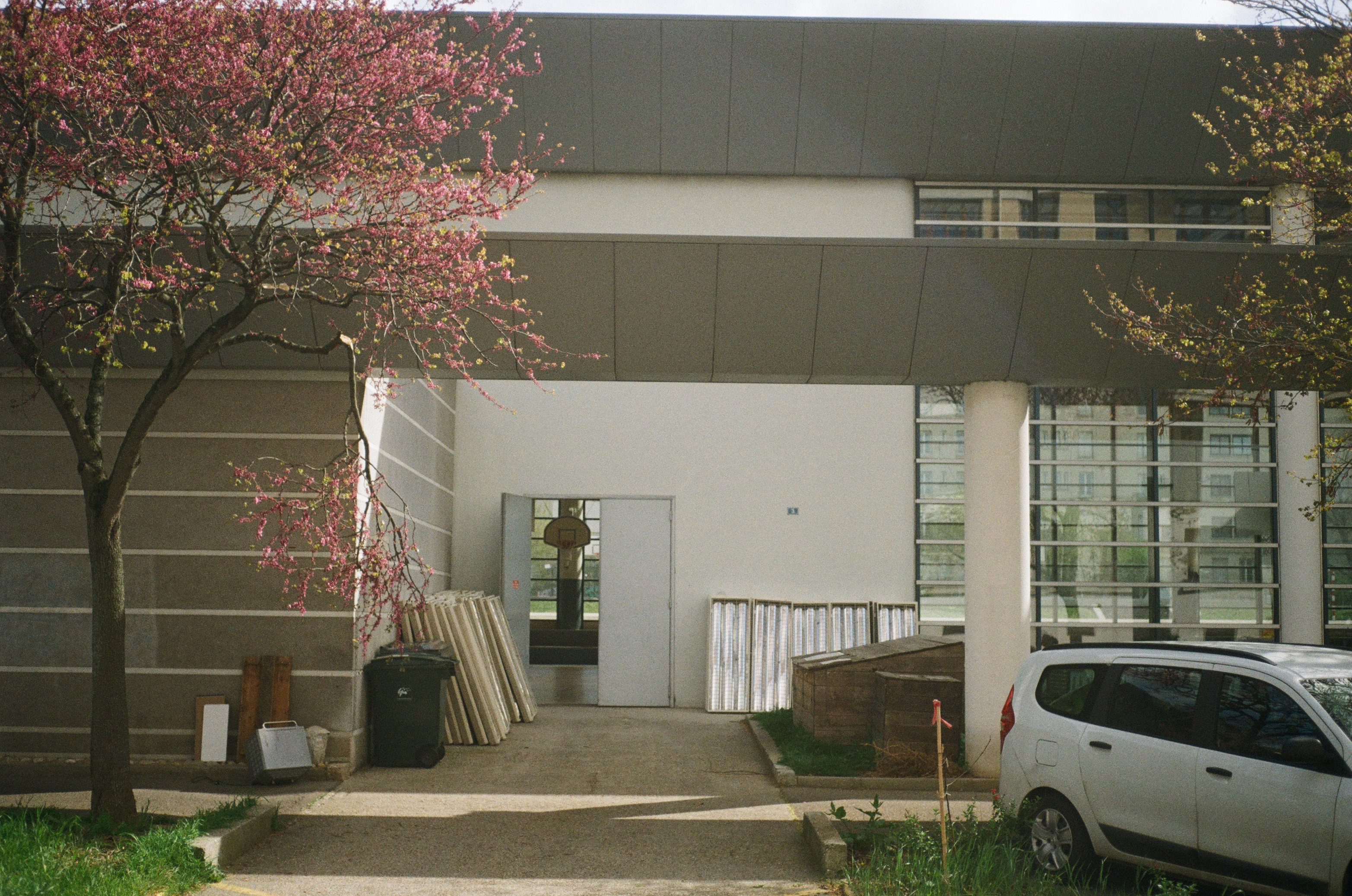
That there is undoubtedly another side to the city, and one you haven’t seen, you won’t deny. France, in having stretched her colonial arms, now must gather in her lost children. But it’s your hope––founded on nothing but that, hope––that even here, the hill is a little less steep for those people coming to Lyon and to France. That while acceptance may be a far cry from the norm, there is at least a trend towards dignity.
IV.
You round out the trip with a walk-up to the hilltop cathedral. The Basilica of Notre Dame of Fourvière was built in 1884 and still holds daily masses. On the way there, you pass streets misted with the hoses of restaurateurs’ washing down for their patios for the evening. Lamp light swims amongst the cobblestones and as if seeing through history, you understand how Van Gogh on the streets of Auvers-Sur-Oise (where he lived and was buried) was inspired to mix his colors, smear his brush, and create canvases like Café, Le Soir.

At the summit, a group of teenagers war with each other, the girls laughing, the boys being idiots. Other sightseers stand alone at the parapet and consider the view. By night, Lyon looks neither large nor small. It looks like any city you’ve seen from above––a series of lights which like tears in a cloth held before the sun, imply a greater radiance behind. The radiance of half a million people going to bed.
You stand there, beside the giant side of the sleeping church. You look, and you look, and then you make sure you’ve really looked. You can’t say when you’ll be back in Lyon.
V.
On your way down the hill you hear music coming from a street without any name you can make-out on the map. The sounds of a horn blow faintly past the empty patio you cut across. You look in through a misted window, a little apprehensive, before convincing yourself to go for it. Down some steps you find a shallowly crowded room with a stage raised about a foot off the far wall. There, a quartet is warming up.
The horn player brings his trumpet to his lips and calls Polka Dots and Moonbeams. He clears his spit valve onto the floor, then fudges the intro, perhaps intentionally, perhaps to signal to the band it’s time to play. His rambling turns into a scale and then a ballad. Lone trumpet on the stage. And suddenly he’s playing the standard, wistfully, soulfully, and not at all badly for a thing of no consequence––oscillating between registers and changes as easily as if he were folding the pages of a newspaper.
A door squeaks, and the trumpet player step backs, blowing air through his instrument to keep it warm and listening as the pianist goes through the B section, his hands changing over one another like racehorses vying for first position. The pianist chooses a new register, and the horn player joins back. He plays his trumpet like a wistful ghost, the chairs squeaking and cups stacking at the bar going behind him like badly rhythmic percussion. The tune loses steam and the trumpet sustains a note, upheld by the piano. The upright bass is there too, beneath it all, barely heard.
The band plays for 40-50 minutes and the audience enters a trance, forgetting all about the long walk home and to bed that the evening will eventually require. The trumpet player looks fatigued, but one can sense in him an inner strength, forged from those years living in attics and closets spent trying to make money from a commodity that disappears as soon as it’s heard. Music. You don’t know if he supports himself on his craft entirely, but you do know with how he plays that he could, and that this is what his soul was formed to do. He looks like Chet, if Chet had lived, and found peace maybe.
VI.
You sit there in silence, enjoying your gin and tonic and nodding your head to the beat of the drummer’s floor tom which goes thwaks like a heartbeat. Outside the night is cooling into early morning––you don’t know how long you sit there, but eventually, after coming back more than once, the band signs off. The crowd, breaks into smaller factions––people who know each other, people who don’t. Slowly, you put some euro’s on the counter and unflolding your coat, wander back into the street. Above the stars come-out over the city, faintly. Here, you think, there are malls and there are 18th century cathedrals. There are people from all over the world, and all of them are French. And there are stars. Lyon won’t be for everyone, but it will be for a frighteningly large majority. It's one of those places that doesn’t raise many objections, and instead only quells doubts.
D.C. 2/11/24
Go Home ︎︎︎